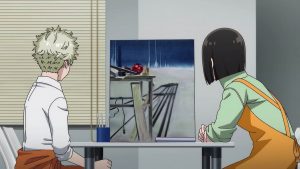 Well, that got pretty damn dark there. Not as dark as it looked like it could get for a second, mind you – but still, pretty damn dark. Yuka is Blue Period’s razor-wire tension, no doubt about it – their life is an exposed raw nerve constantly being prodded and plucked at, which is unfortunately a pretty realistic scenario. It’s bad in Japan, but we shouldn’t pretend it’s a Japanese thing – kids in Yuka’s situation often find themselves pushed to existential turmoil by their families no matter where they grow up.
Well, that got pretty damn dark there. Not as dark as it looked like it could get for a second, mind you – but still, pretty damn dark. Yuka is Blue Period’s razor-wire tension, no doubt about it – their life is an exposed raw nerve constantly being prodded and plucked at, which is unfortunately a pretty realistic scenario. It’s bad in Japan, but we shouldn’t pretend it’s a Japanese thing – kids in Yuka’s situation often find themselves pushed to existential turmoil by their families no matter where they grow up.
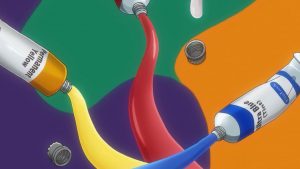 Obviously I feel for Yuka, as anyone with any sense of empathy would. But I also feel for Yatora. No matter what Yuka says, I think Yatora is a good person (and I think Yuka knows this). It’s not easy for someone who doesn’t have Yuka’s problems to really understand them, especially as a child who’s probably never learned about how these things work. There’s a definite history between Yatora and the one he calls Ryuji – their relationship is strained but conspicuously familiar, more so than you’d expect given the circles Yatora ran in before he turned to the art world.
Obviously I feel for Yuka, as anyone with any sense of empathy would. But I also feel for Yatora. No matter what Yuka says, I think Yatora is a good person (and I think Yuka knows this). It’s not easy for someone who doesn’t have Yuka’s problems to really understand them, especially as a child who’s probably never learned about how these things work. There’s a definite history between Yatora and the one he calls Ryuji – their relationship is strained but conspicuously familiar, more so than you’d expect given the circles Yatora ran in before he turned to the art world.
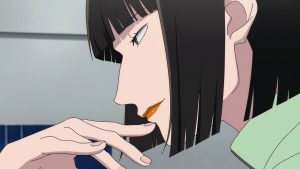 This is especially tough on Yatora because he’s in the midst of literally the most stressful week of his life, one which will basically decide the course of his entire future. He’s lucky in that he seems to have basically normal relationships with his parents (at least his mom) but they’re obviously not well off, and his decision to pursue art was a hard sell. And he’s about to undertake an exam about which he feels less confident, because colors are an area which he considers a weakness. These may seem like first world problems compared to what Yuka is going through, but they’re still pretty damn monumental if you’re in Yatora’s shoes.
This is especially tough on Yatora because he’s in the midst of literally the most stressful week of his life, one which will basically decide the course of his entire future. He’s lucky in that he seems to have basically normal relationships with his parents (at least his mom) but they’re obviously not well off, and his decision to pursue art was a hard sell. And he’s about to undertake an exam about which he feels less confident, because colors are an area which he considers a weakness. These may seem like first world problems compared to what Yuka is going through, but they’re still pretty damn monumental if you’re in Yatora’s shoes.
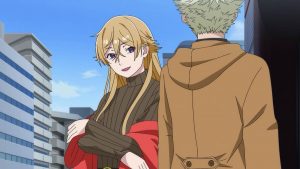 As a complete muggle when it comes to the visual arts, color is among the most mystifying elements there is for me. I don’t know why some colors look better on people (even myself) than others. I don’t even really know why a tie might go with a shirt or clash with it – maybe I can spot it, but even if I can I can’t explain why. As usual Yatora turns to Ooba-sensei for advice, and now that the endgame is upon us she has no more reason to hold him back from tackling the matter head on. His problem here is a recurring pattern – too much focus on process and too little trust in his own instincts. This is common for late starters in any vocation, as it happens – talent and hard work are wonderful, but there truly is no substitute for experience.
As a complete muggle when it comes to the visual arts, color is among the most mystifying elements there is for me. I don’t know why some colors look better on people (even myself) than others. I don’t even really know why a tie might go with a shirt or clash with it – maybe I can spot it, but even if I can I can’t explain why. As usual Yatora turns to Ooba-sensei for advice, and now that the endgame is upon us she has no more reason to hold him back from tackling the matter head on. His problem here is a recurring pattern – too much focus on process and too little trust in his own instincts. This is common for late starters in any vocation, as it happens – talent and hard work are wonderful, but there truly is no substitute for experience.
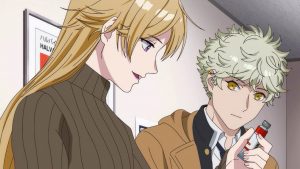 Though Ooba-sensei does (perhaps unwisely) ask Yatora if he’s heard from Ryuji, it’s not until a chance meeting outside an art supply store that the two speak. Things in Yuka’s life have clearly taken a rough turn – working in a hostess club is not something a kid in Yuka’s position (vulnerable in every sense) should be doing. That meeting ends pretty quickly, but when Yatora finds out from Yuka’s “stalker” about the “X” incident, he calls to check up (and soon regrets it). The resentment Yuka vents at Yatora is obviously sincere (and understandable), but I would argue more than a little unfair.
Though Ooba-sensei does (perhaps unwisely) ask Yatora if he’s heard from Ryuji, it’s not until a chance meeting outside an art supply store that the two speak. Things in Yuka’s life have clearly taken a rough turn – working in a hostess club is not something a kid in Yuka’s position (vulnerable in every sense) should be doing. That meeting ends pretty quickly, but when Yatora finds out from Yuka’s “stalker” about the “X” incident, he calls to check up (and soon regrets it). The resentment Yuka vents at Yatora is obviously sincere (and understandable), but I would argue more than a little unfair.
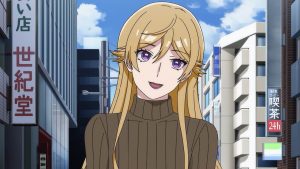 Blue Period never shies away from interesting philosophical debates, and this whole business about Yatora being “a person who’d go look for the life preserver, but not jump in the water” in an interesting one. I mean, is that really wrong? As Yatora points out, if he jumps in the water he might drown too. I do get Yuka’s frustration at Yatora constantly doing the “right thing” – for someone who’s never allowed to do what others would consider the right thing because of their very nature, that’s got to be extremely frustrating. And that quality in Yatora is limiting for him as an artist, there’s no question about it. But he’s got an exam in two days – I don’t think he’s being selfish here.
Blue Period never shies away from interesting philosophical debates, and this whole business about Yatora being “a person who’d go look for the life preserver, but not jump in the water” in an interesting one. I mean, is that really wrong? As Yatora points out, if he jumps in the water he might drown too. I do get Yuka’s frustration at Yatora constantly doing the “right thing” – for someone who’s never allowed to do what others would consider the right thing because of their very nature, that’s got to be extremely frustrating. And that quality in Yatora is limiting for him as an artist, there’s no question about it. But he’s got an exam in two days – I don’t think he’s being selfish here.
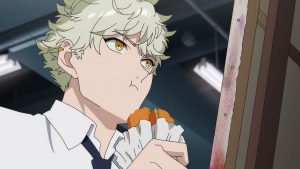 Sigh… Adolescence is tough even if you’re not dealing with what Yuka is. There’s no one really wrong here – if I were Yuka I’d be thinking “why the hell did you bother calling if you’re going to beg off really helping because of the exam?”. But if I were Yatora, I’d be trying to focus on just that. The whole “jump” business on the train platform got genuinely harrowing there for a moment, and I’m glad the moment passed. In the final analysis I think the only way Yatora can clear his mind is to fully embrace Yuka’s crisis, not defer it. As for Yuka, the questions just keep coming – like why Japanese art, when it’s clearly not their passion (emulating grandma?). What makes sense for me is that Yuka pursues fashion design, but we’ll see if the story goes that route.
Sigh… Adolescence is tough even if you’re not dealing with what Yuka is. There’s no one really wrong here – if I were Yuka I’d be thinking “why the hell did you bother calling if you’re going to beg off really helping because of the exam?”. But if I were Yatora, I’d be trying to focus on just that. The whole “jump” business on the train platform got genuinely harrowing there for a moment, and I’m glad the moment passed. In the final analysis I think the only way Yatora can clear his mind is to fully embrace Yuka’s crisis, not defer it. As for Yuka, the questions just keep coming – like why Japanese art, when it’s clearly not their passion (emulating grandma?). What makes sense for me is that Yuka pursues fashion design, but we’ll see if the story goes that route.


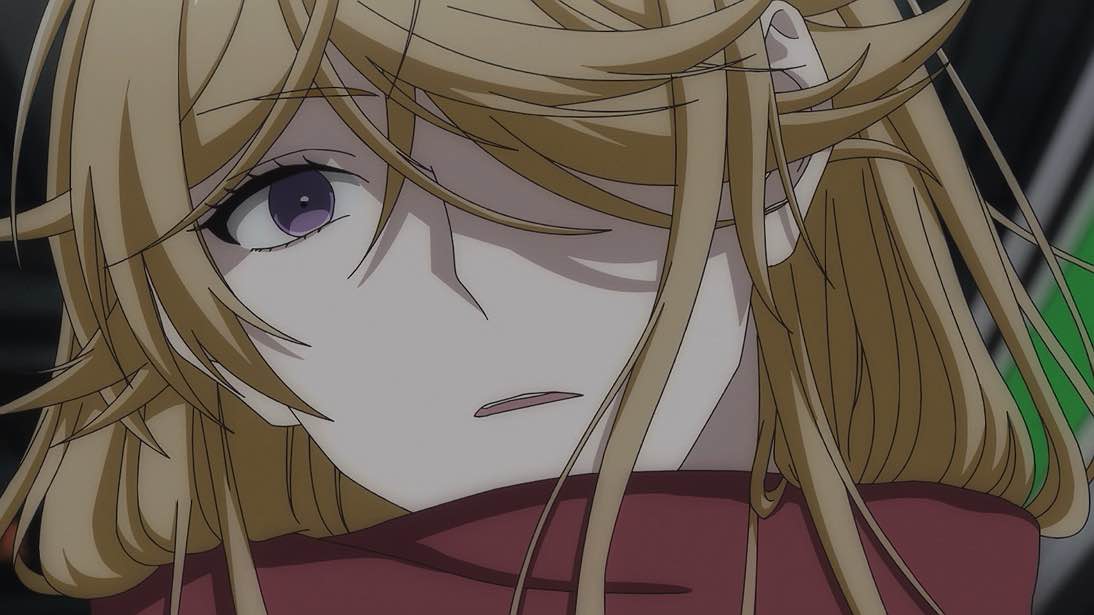
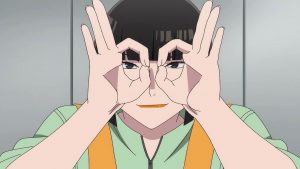
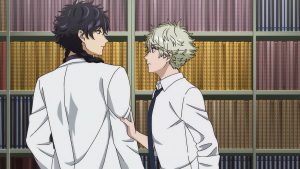
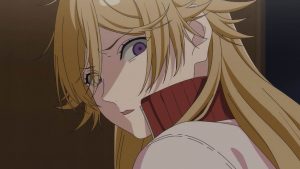
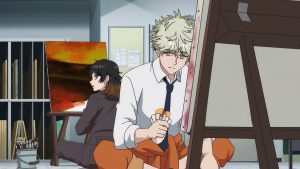
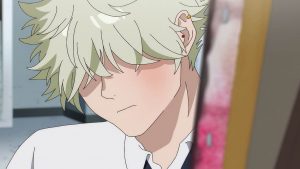
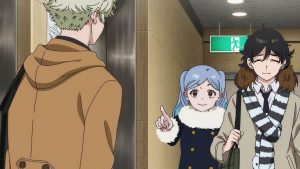
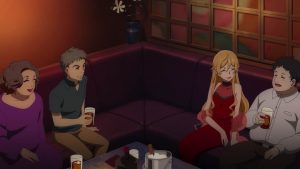
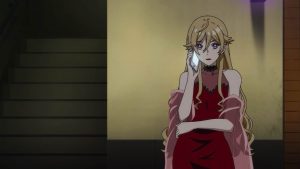
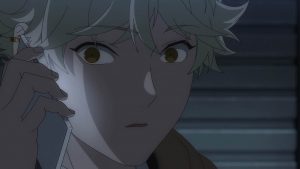
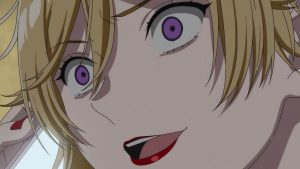
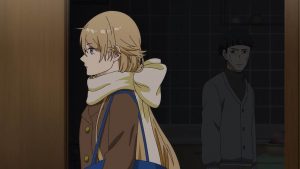
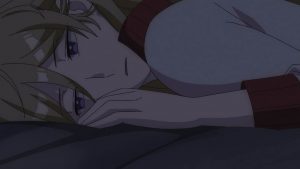
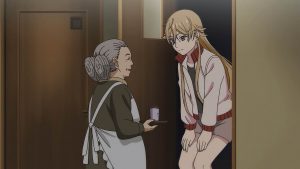
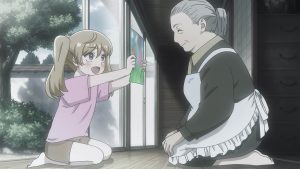
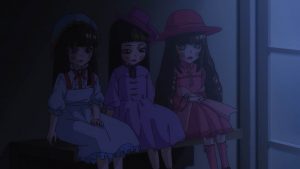
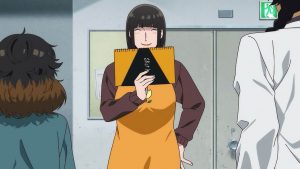
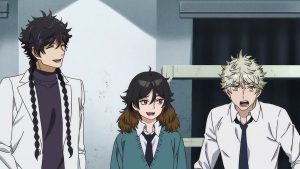
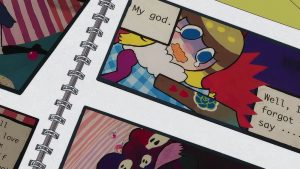
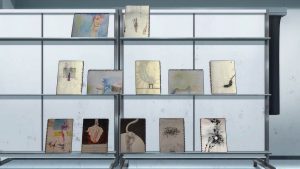
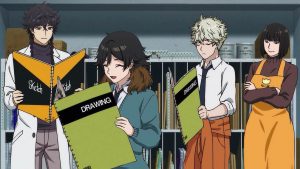
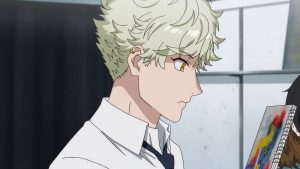
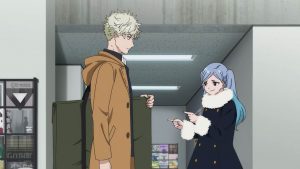
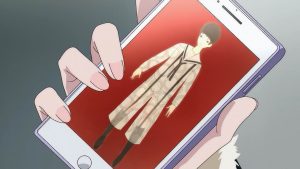
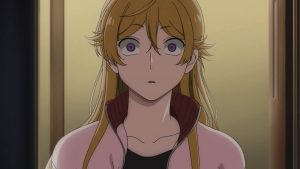
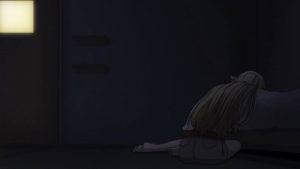
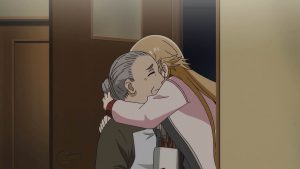
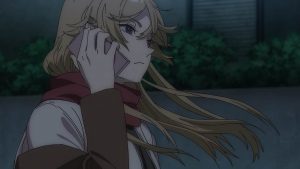
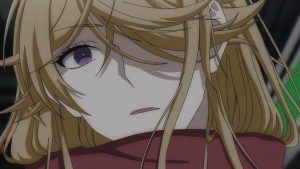
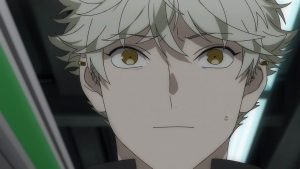
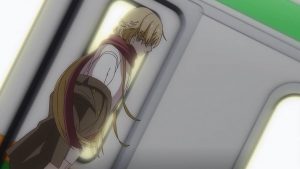
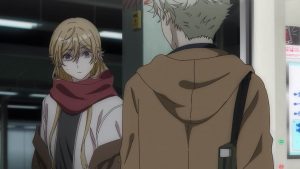
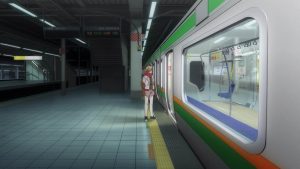
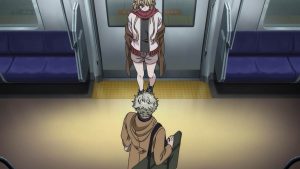
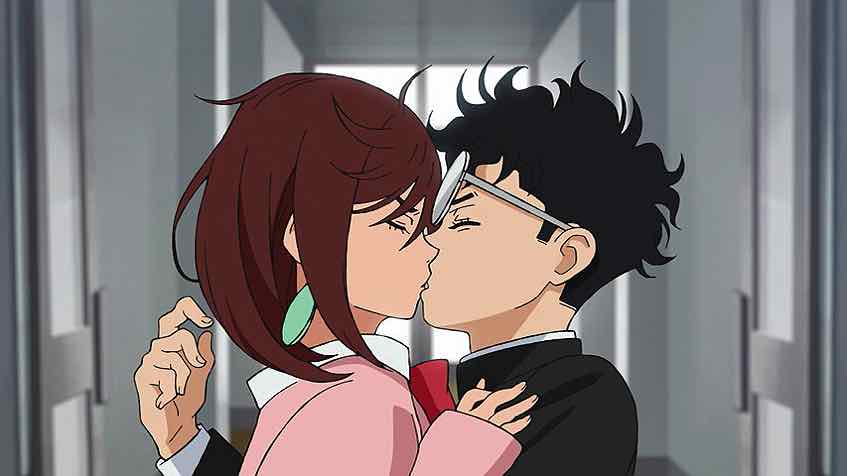
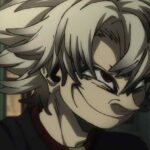
roger p
November 22, 2021 at 3:31 amThanks for the review, Enzo! Even if it was less focused on the art, I loved this episode even more than I did last week’s. And I’d be surprised if whatever is going to happen with Yuka doesn’t make Yatora grow as a person and an artist, and help him pass the oil painting exam with flying colors
leongsh
November 22, 2021 at 5:12 amThey followed up on the strong episode of Episode 8 with another in Episode 9. The strength of the manga shows through.
The anime adaptation removed the brief explanation about colours using the colour wheel that occucred during Yatora’s consultation with Ooba-sensei. If you’re looking for it in the manga, this is found in Chapter 18. Canva, on online design tool, has an easy reference page on colours, the colour wheel and how colours work (Link: https://www.canva.com/colors/color-wheel/).
Say
November 22, 2021 at 11:59 pmNext episode is going to deal with one of my favorite moments in the manga. Great episode, great review!
Guardian Enzo
November 23, 2021 at 12:49 amThank you, looking forward to it!
DonkeyWan
November 23, 2021 at 2:53 amYeah, loving this series, favourite of the season.